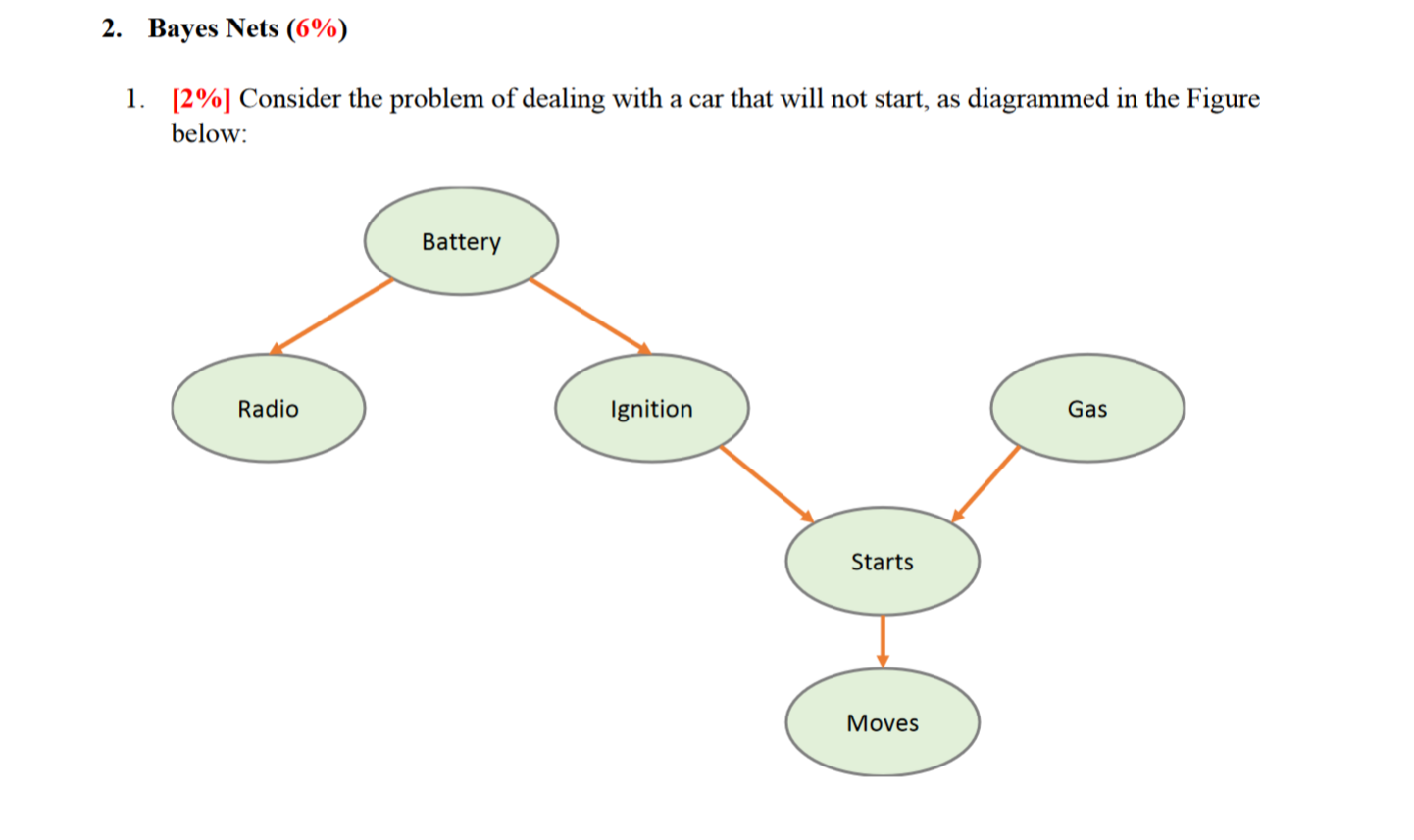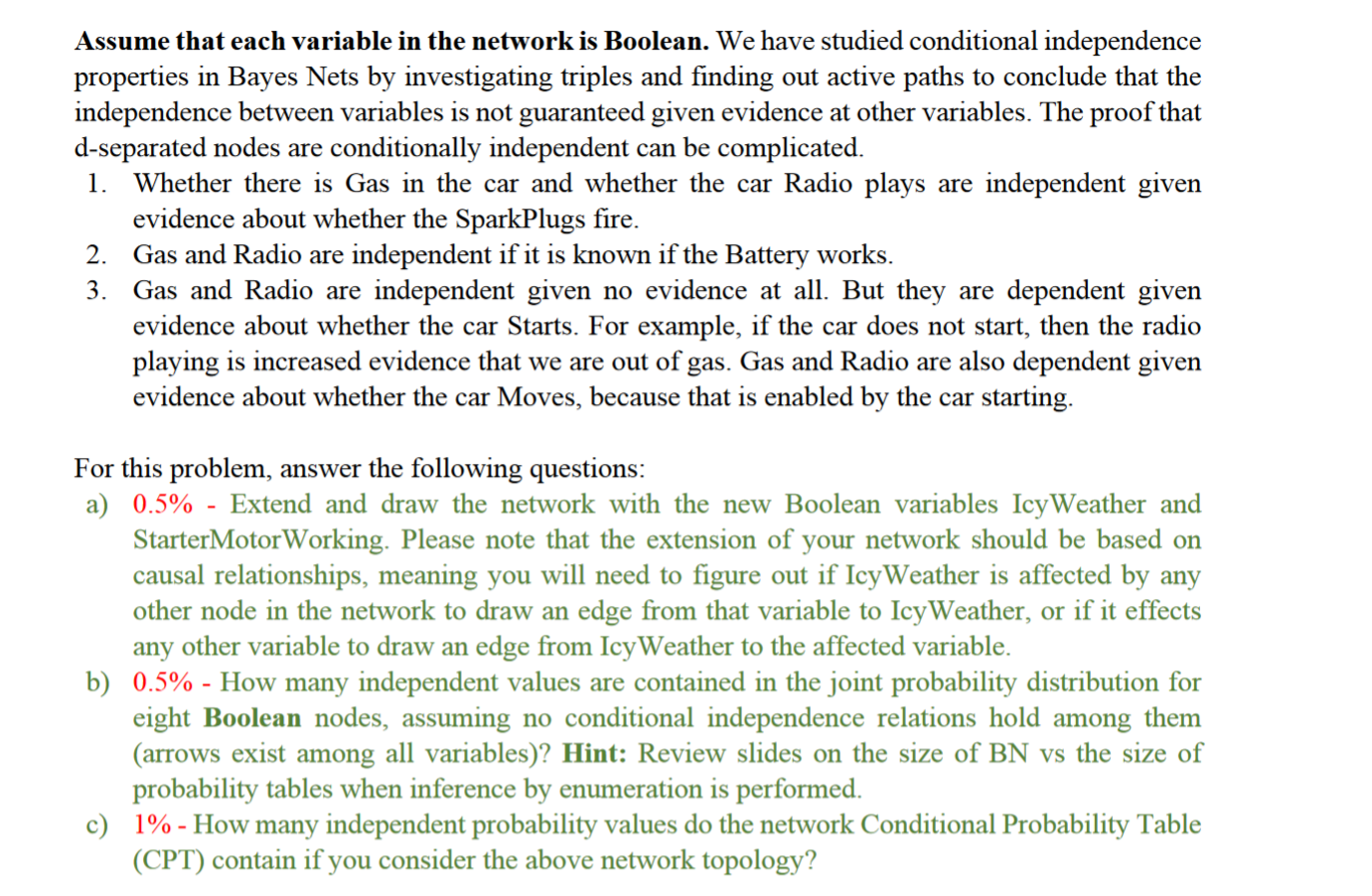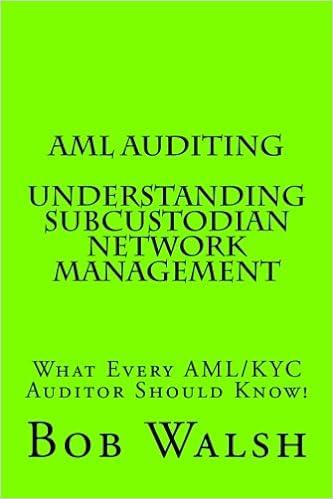

2. Bayes Nets (6%) 1. [2%] Consider the problem of dealing with a car that will not start, as diagrammed in the Figure below: Battery Radio Ignition Gas Starts Moves Assume that each variable in the network is Boolean. We have studied conditional independence properties in Bayes Nets by investigating triples and finding out active paths to conclude that the independence between variables is not guaranteed given evidence at other variables. The proof that d-separated nodes are conditionally independent can be complicated. 1. Whether there is Gas in the car and whether the car Radio plays are independent given evidence about whether the SparkPlugs fire. 2. Gas and Radio are independent if it is known if the Battery works. 3. Gas and Radio are independent given no evidence at all. But they are dependent given evidence about whether the car Starts. For example, if the car does not start, then the radio playing is increased evidence that we are out of gas. Gas and Radio are also dependent given evidence about whether the car Moves, because that is enabled by the car starting. For this problem, answer the following questions: a) 0.5% - Extend and draw the network with the new Boolean variables IcyWeather and StarterMotorWorking. Please note that the extension of your network should be based on causal relationships, meaning you will need to figure out if IcyWeather is affected by any other node in the network to draw an edge from that variable to IcyWeather, or if it effects any other variable to draw an edge from IcyWeather to the affected variable. b) 0.5% - How many independent values are contained in the joint probability distribution for eight Boolean nodes, assuming no conditional independence relations hold among them (arrows exist among all variables)? Hint: Review slides on the size of BN vs the size of probability tables when inference by enumeration is performed. c) 1% - How many independent probability values do the network Conditional Probability Table (CPT) contain if you consider the above network topology? 2. Bayes Nets (6%) 1. [2%] Consider the problem of dealing with a car that will not start, as diagrammed in the Figure below: Battery Radio Ignition Gas Starts Moves Assume that each variable in the network is Boolean. We have studied conditional independence properties in Bayes Nets by investigating triples and finding out active paths to conclude that the independence between variables is not guaranteed given evidence at other variables. The proof that d-separated nodes are conditionally independent can be complicated. 1. Whether there is Gas in the car and whether the car Radio plays are independent given evidence about whether the SparkPlugs fire. 2. Gas and Radio are independent if it is known if the Battery works. 3. Gas and Radio are independent given no evidence at all. But they are dependent given evidence about whether the car Starts. For example, if the car does not start, then the radio playing is increased evidence that we are out of gas. Gas and Radio are also dependent given evidence about whether the car Moves, because that is enabled by the car starting. For this problem, answer the following questions: a) 0.5% - Extend and draw the network with the new Boolean variables IcyWeather and StarterMotorWorking. Please note that the extension of your network should be based on causal relationships, meaning you will need to figure out if IcyWeather is affected by any other node in the network to draw an edge from that variable to IcyWeather, or if it effects any other variable to draw an edge from IcyWeather to the affected variable. b) 0.5% - How many independent values are contained in the joint probability distribution for eight Boolean nodes, assuming no conditional independence relations hold among them (arrows exist among all variables)? Hint: Review slides on the size of BN vs the size of probability tables when inference by enumeration is performed. c) 1% - How many independent probability values do the network Conditional Probability Table (CPT) contain if you consider the above network topology








